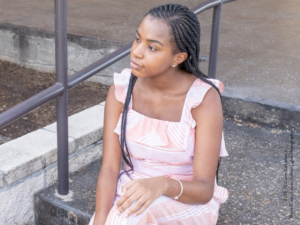“Currently, my tween’s activities and hobbies include binge-watching Fuller House.” If this sounds familiar, you may very well be in good company. In some cases, young children and tweens discover interests and hobbies early on; keeping them very occupied with a very full schedule. However, that’s not always the case for all children. Sometimes children and tweens do not develop specific interests in certain activities or cultivate hobbies, leaving parents to wonder if this is simply a stage of development, or a reason to be concerned.
When it comes to childhood development, it is important to remember that each tween is going to be different. According to Jonathan Breaux, LMSW, Clinical Director of Genesis/Holistic Solutions Center of Baton Rouge, “Every child is unique and will have their own developmental trajectory.” Essentially, just as physical development differs from child to child, development of interests will differ as well. He continues, “Some children may display a smaller number of interests and develop a focal interest very early on in life. Other children may show a generalized interest in several areas but not develop a focal interest until later in their development.”
Local mom, Jennifer Harland says that her tween currently does not have any interests or activities. “Around five years old, she started cheerleading/tumbling and that was clearly her ‘thing,’ as she excelled at it, progressing very quickly.” But a serious physical condition requiring surgery forced her to stop. “In preparation for her not being able to continue competitive cheerleading, we tried to get her interested in other sports like tennis, swimming, volleyball,” says Harland. “We even bought her a ukulele at her request, hoping it might spark a musical interest, but nothing has stuck.”
For parents of a tween with few interests, it’s important to remember that each child is unique, and there is generally no need to fix the situation. According to Breaux, “I believe it is a good idea for parents to encourage interests that they notice their child gravitating towards.” It’s more important for parents to support the interests they see in their children rather than force them to have an interest. For example, a child who has a lot of energy and is physically active can be encouraged to play sports or engage in physical activity, whereas, a child who is interested in colors or expresses an interest in sounds could be introduced to art or music. “In my experience, it is important for the parent to provide guidance and support to the intrinsic interests that their child expresses,” says Breaux.
While it is important for parents to serve as a support for their children, Tanya Stuart, LCSW-BACS, LAC, Owner of Genesis/Holistic Solutions Center of Baton Rouge, encourages parents to let their tweens take the lead. “I would encourage parents to let tweens and teens identify their own interests, as teens need a sense of control in their life.” She suggests parents can give directions but let the tween make his/her own decision about what activity to explore. She continues, “You can tell your child that you would really like for them to be involved in some sort of activity and encourage them to do research on options. Give them a time frame to come up with something.” Of course, she reminds families to always be supportive of the child’s choices.
Whatever activities or hobbies your tween becomes interested in, Stuart reminds parents to make sure there is balance. “It is important that teens learn how to find balance between family, friends, activities/hobbies.” She continues, “Academic and physical health are important for a tween/teen’s development. Learning this skill while they are young can help them as adults to have a balanced, healthy life.”
When to Worry
A lack of interest in activities can be a source of concern under certain circumstances. If parents notice a significant change in a tween or teen’s interest in something that they had previously enjoyed doing, Stuart encourages parents to look at other aspects of the child’s life. “If a tween seems less interested in their activities or hobbies than normal, the usual culprit is a need to socialize and connect with their peers, which is totally normal.” It is a typical part of childhood development around the ages of 12-13 for children to want to spend more time with their peers.
However, explains Stuart, it is important to pay attention to the tween or teen’s overall emotional health. “If they seem disconnected, exhibiting mood changes, (taking into consideration normal mood changes with adolescents) grades dropping, and a lack of interest in extracurricular activities, there may be a need for assessment.” If a tween or teen exhibits these kinds of behaviors, Stuart recommends assessing for depression, anxiety, or substance abuse. She continues, “Start by having a conversation with your teen or seeking out the assistance of a professional.”
Jennifer Harland says that she continues to support her daughter’s current lack of interest and feels positive that the right thing will eventually come. “I know when she does find her ‘thing’ she’ll be unstoppable–that’s her personality which is why I don’t worry.”





